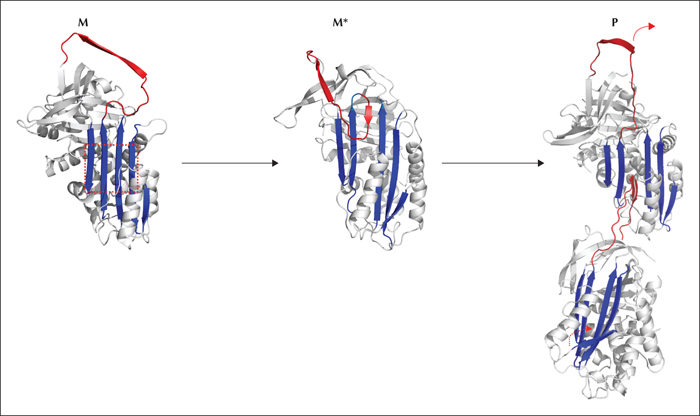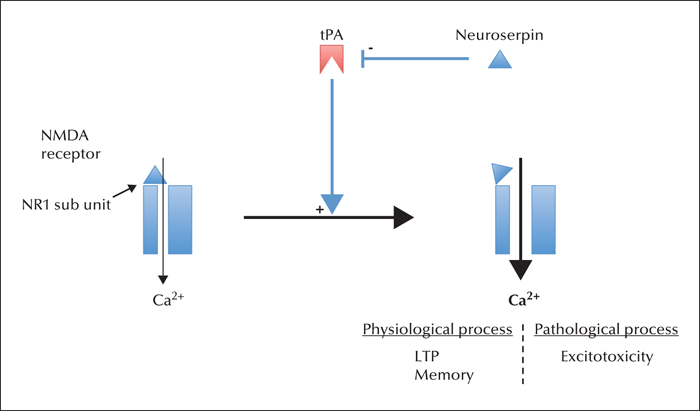Epileptic Disorders
MENUProgressive myoclonus epilepsy associated with neuroserpin inclusion bodies (neuroserpinosis) Volume 18, supplément 2, September 2016
- Mots-clés : serpins, serpinopathy, protease inhibitor, conformational disease, neuroserpin, dementia, familial progressive myoclonic epilepsy, FENIB, progressive myoclonus epilepsies
- DOI : 10.1684/epd.2016.0847
- Page(s) : 103-10
- Année de parution : 2016
Familial encephalopathy with neuroserpin inclusion bodies (FENIB) is a conformational proteinopathy characterised by neuronal inclusion bodies composed of the serine protease inhibitor (SERPIN), neuroserpin. Presenting clinically as a familial dementia-epilepsy syndrome, the molecular mechanism of the pathogenic abnormalities in neuroserpin has been characterised at atomic resolution. There is a remarkable genotype-phenotype correlation between the degree of molecular destabilisation of the several variants of the neuroserpin protein, their propensity to self-associate and the age of onset of the dementia-epilepsy complex. As with other serpinopathies there appears to be a mix of cell-autonomous toxicity, due to neuronal accumulation of neuroserpin, and non-cell autonomous toxicity, caused by loss of protease inhibition, in this case the dysregulated protease is likely to be tissue plasminogen activator (tPA). FENIB should be considered in cases of progressive myoclonic epilepsy and dementia particularly where there is family history of neuropsychiatric disease.



